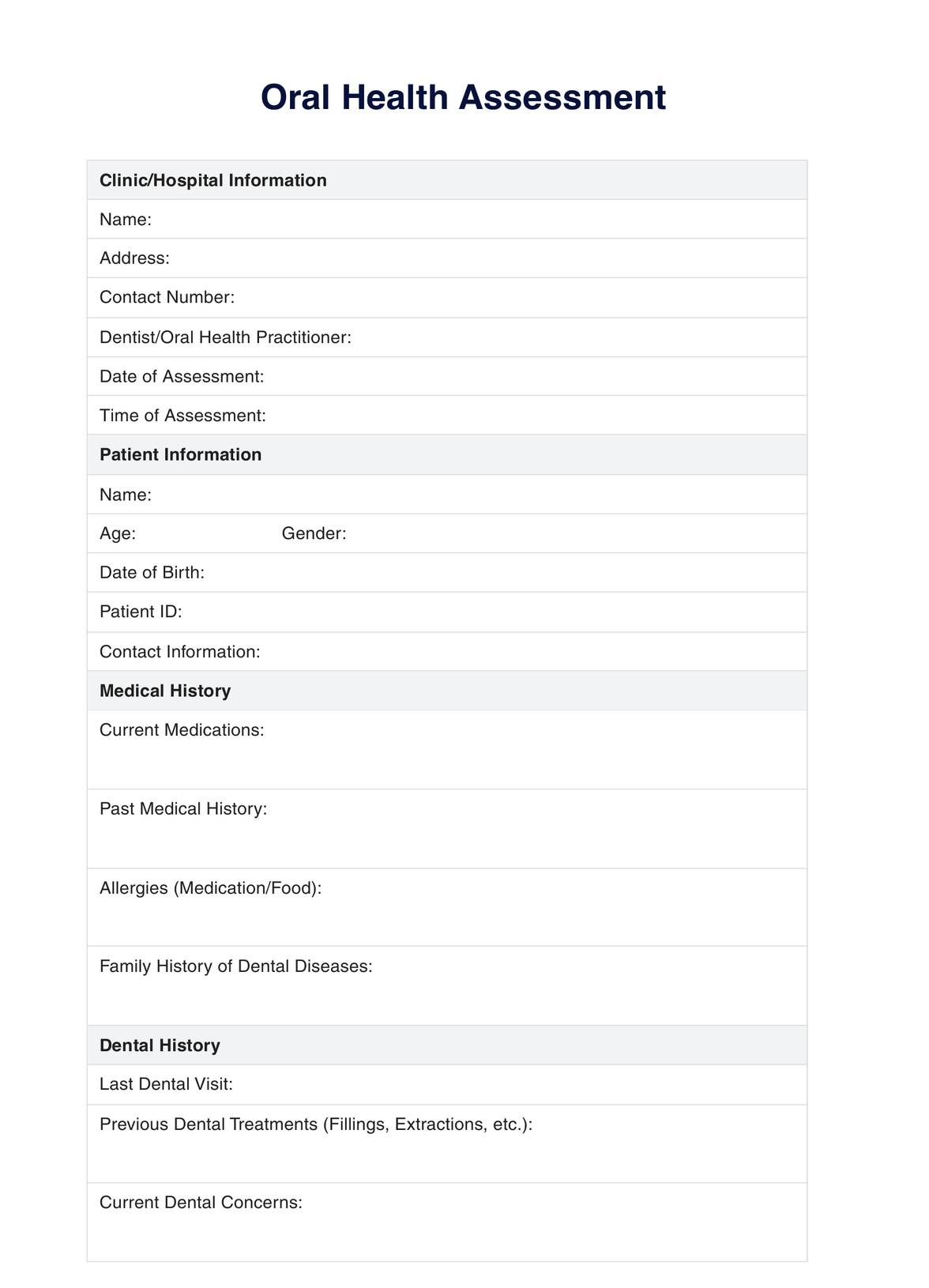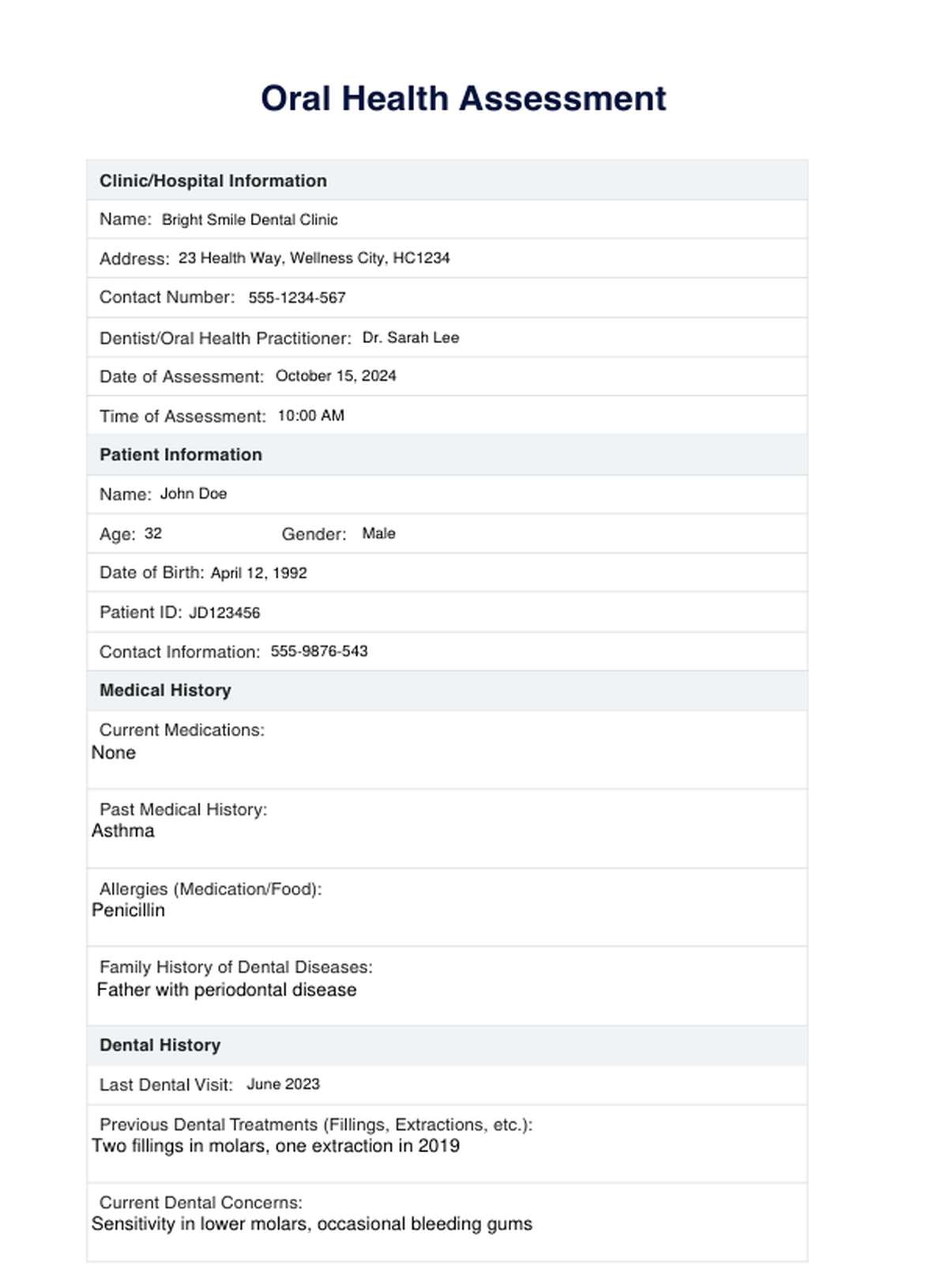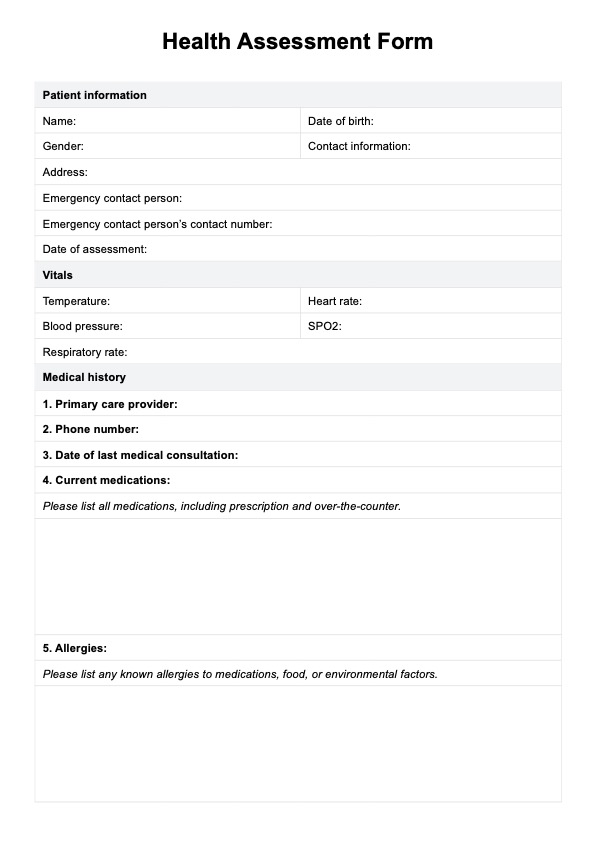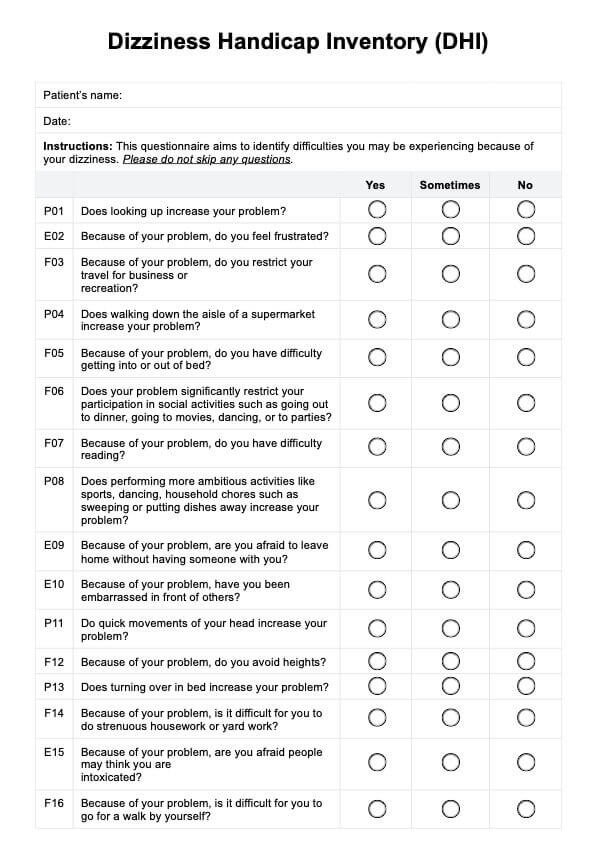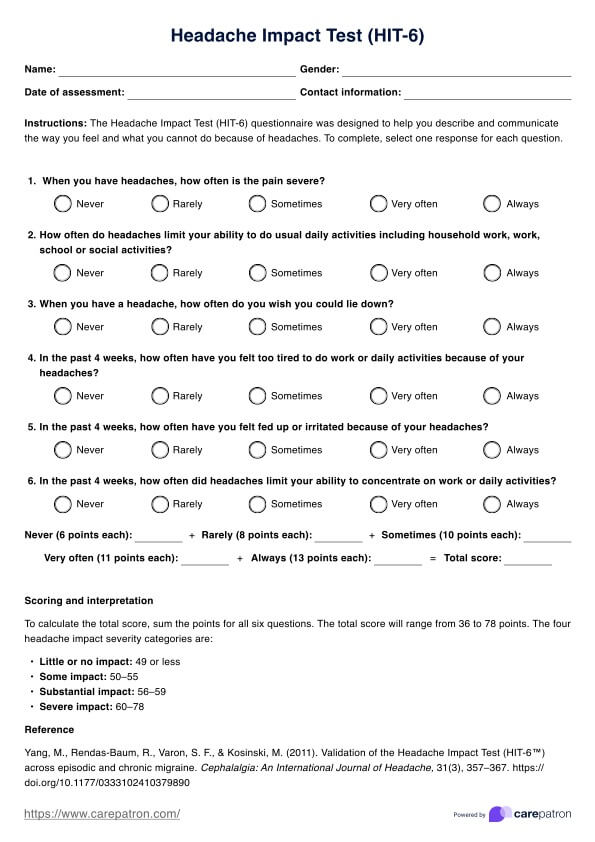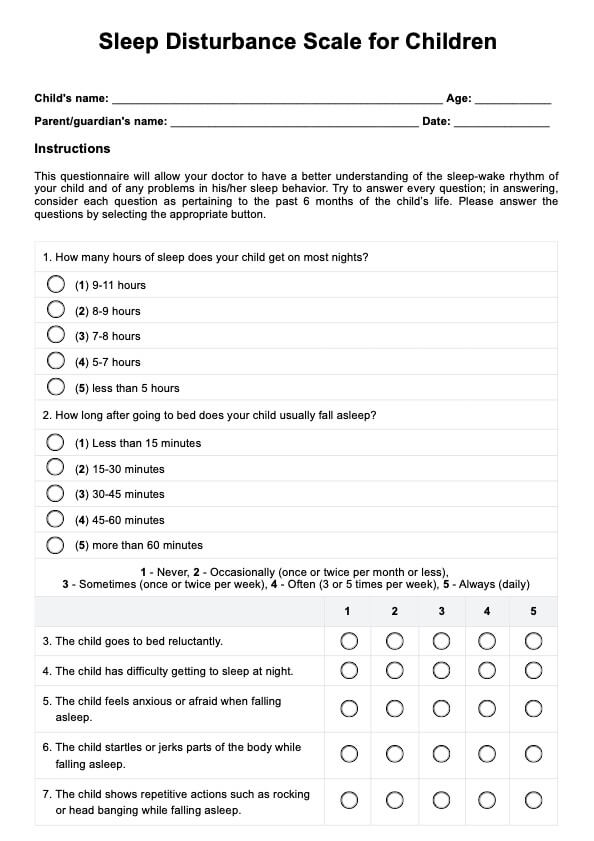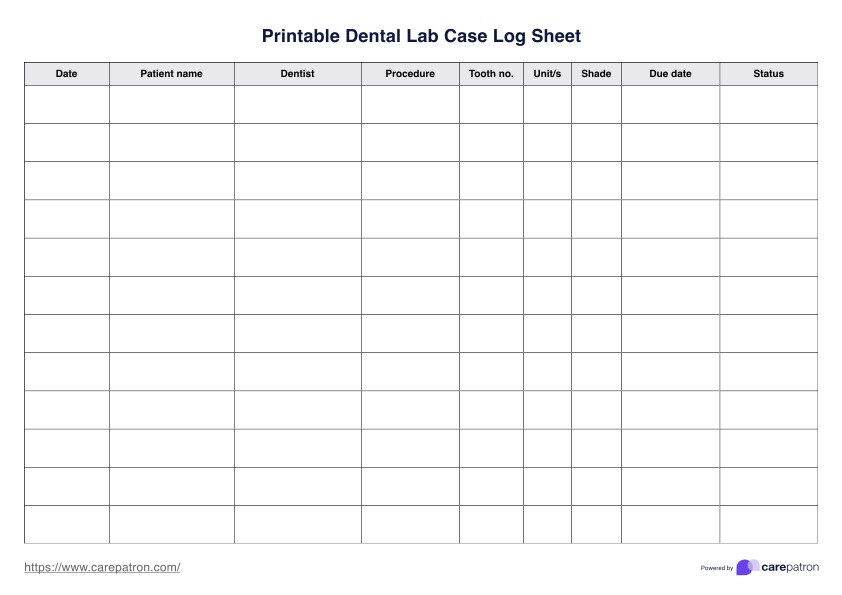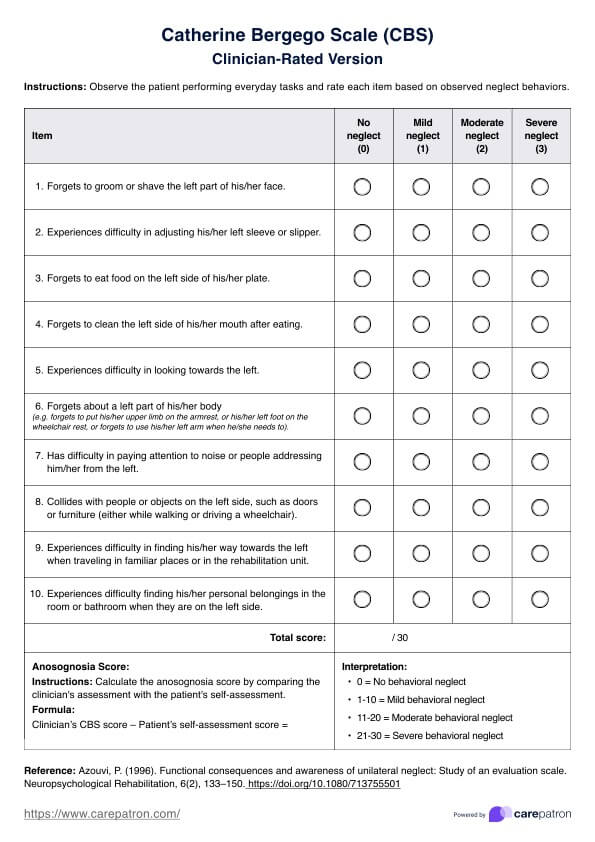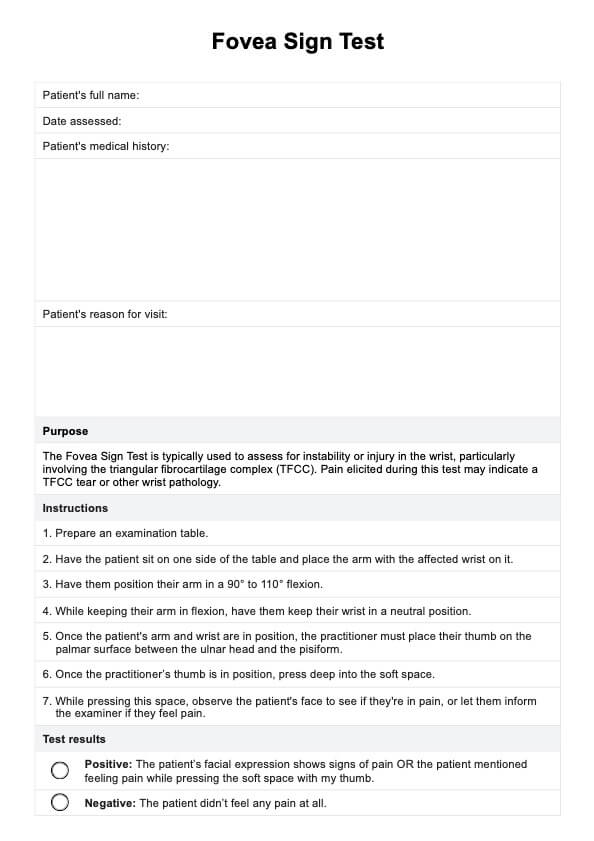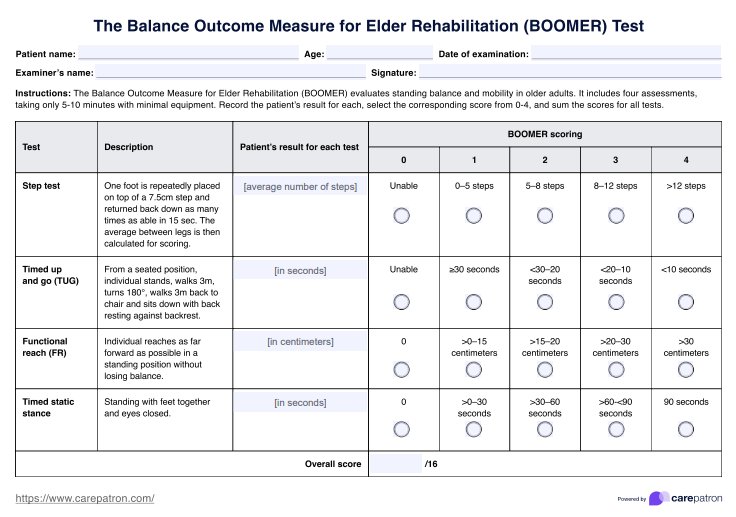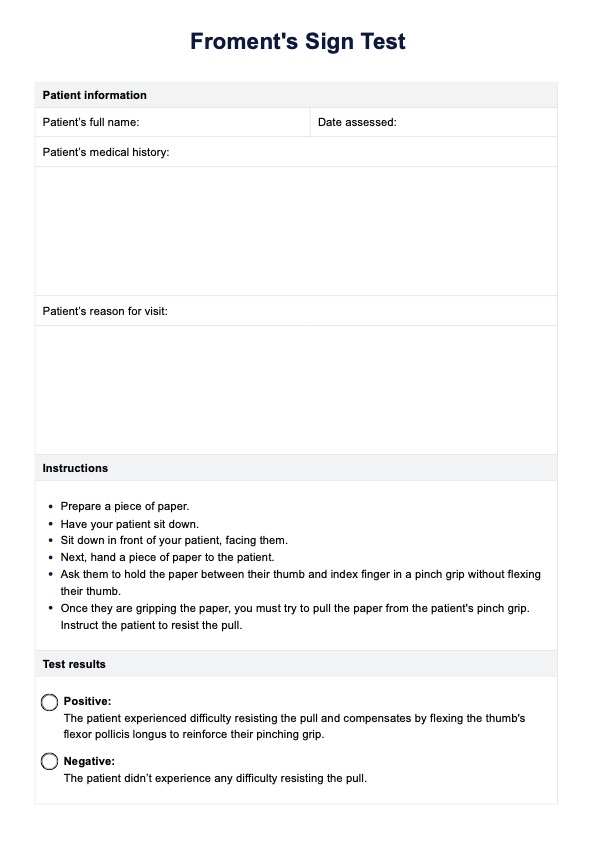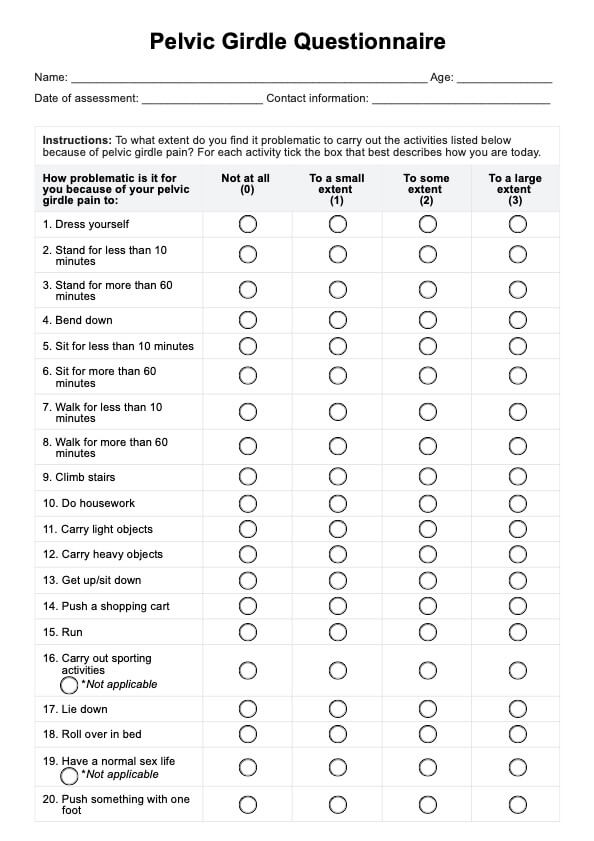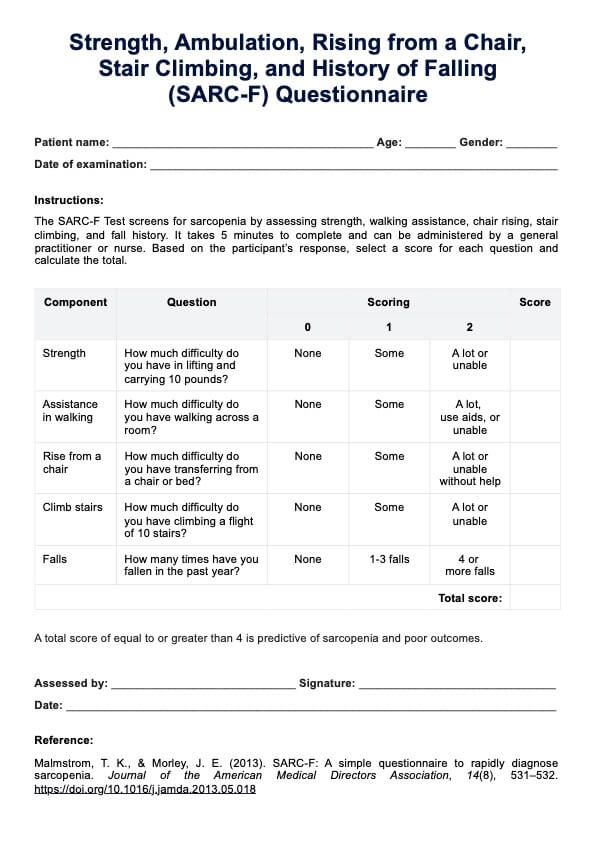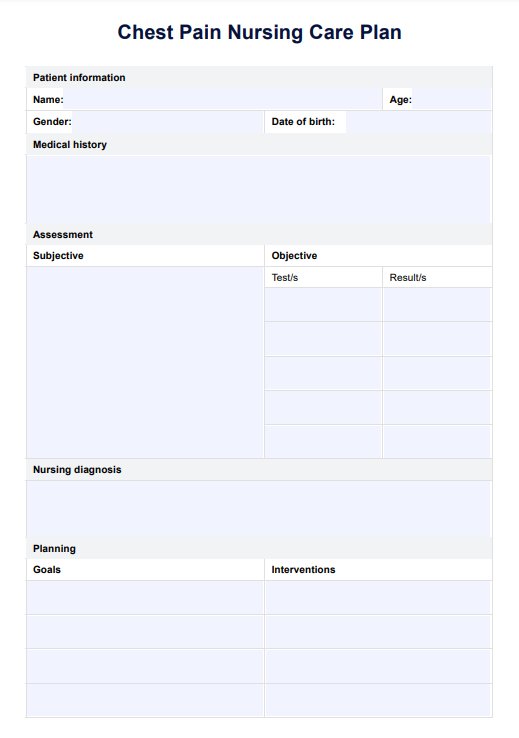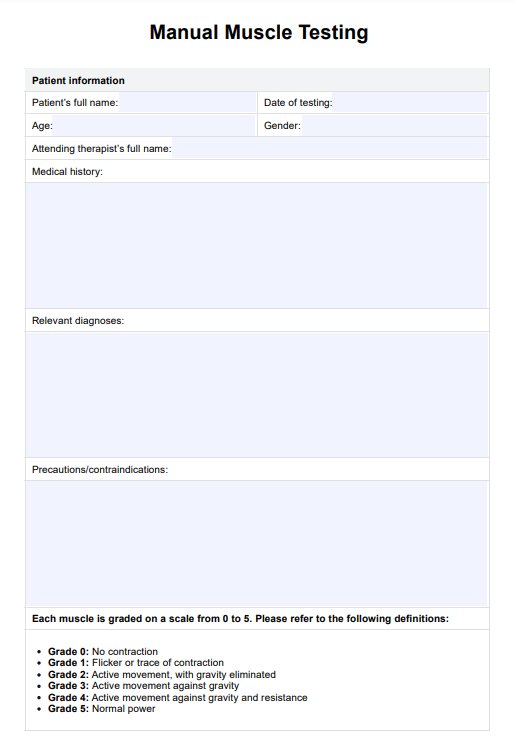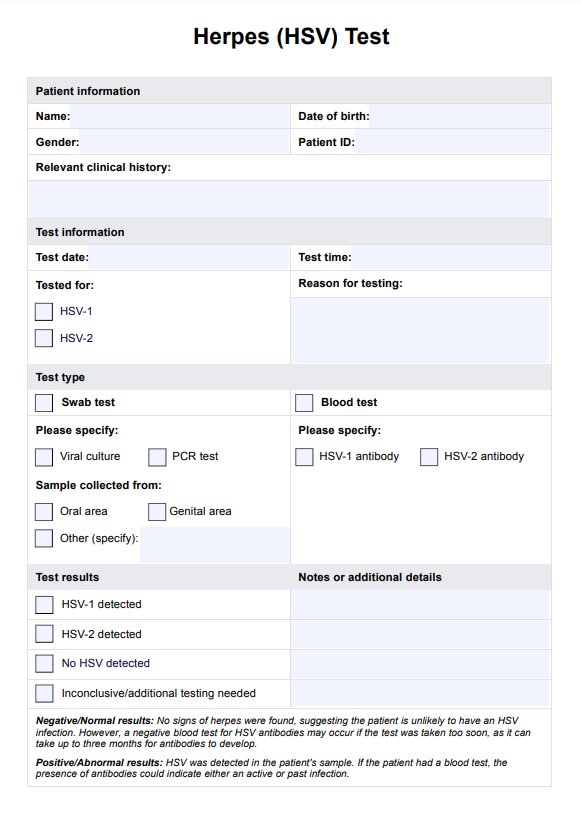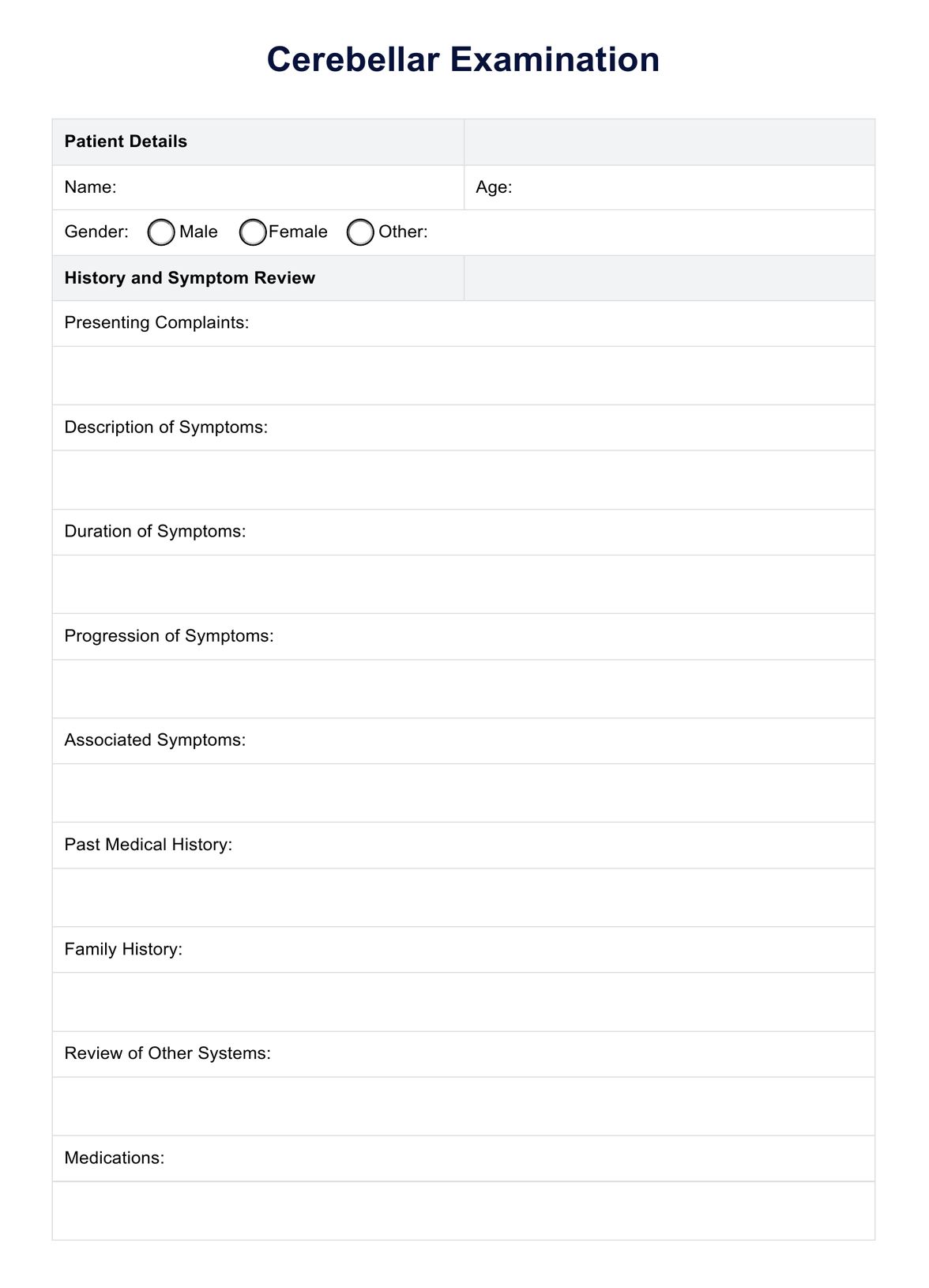Oral Health Assessment Form
Explore the importance of oral health assessments for children, focusing on early detection, education, and establishing a dental home for overall well-being.


What is an oral health assessment?
An oral health assessment is a comprehensive evaluation of an individual's dental and oral health by a qualified dental professional. This assessment encompasses a complete and thorough examination of the teeth, gums, and mouth to identify any signs of oral disease, dental decay, or other conditions that may affect a person's overall health. Oral health assessments are crucial for detecting problems early on, allowing for timely intervention and treatment to prevent more serious health issues down the line.
Oral Health Assessment Form Template
Oral Health Assessment Form Example
Importance of an oral health assessment
Oral health assessments are crucial for safeguarding dental health and well-being, especially in children. In the United States, laws mandate these assessments for students at key educational milestones, such as entering kindergarten, to achieve several important objectives:
- Ensure early detection: Early identification of dental issues through assessments can prevent the progression of serious complications, making treatments more manageable and less invasive.
- Promote oral health education: These assessments offer a prime opportunity to educate families on effective oral hygiene practices, crucial for preventing dental diseases and instilling lifelong healthy habits.
- Establish a dental home: Mandating dental check-ups encourages a continuous care relationship between families and dental professionals, emphasizing the importance of regular dental visits for comprehensive care.
The requirement for oral health assessments reflects the understanding of oral health's significant impact on overall health and academic performance. By prioritizing early detection, education, and ongoing dental care, these assessments aim to instill a foundation for good oral health practices from a young age, contributing to the broader goal of enhancing public health.
What does an Oral Health Assessment Form include?
An oral health assessment form is a document used by dental professionals to record the findings of an oral health examination. Typically, this form includes sections for:
- Personal information: Details about the child or patient, including name, age, and contact information.
- Dental history: Previous dental visits, treatments, and ongoing dental issues.
- Examination results: Observations from the current assessment, including the health of teeth and gums, presence of cavities, and any signs of oral disease.
- Recommendations: Professional advice based on the assessment, possibly including referrals, treatment plans, or preventive measures.
How to use this form
Using an oral health assessment form involves several steps:
- Gathering information: Collect necessary details from the patient or their guardians.
- Conducting the assessment: Perform a thorough examination and note any findings on the form.
- Reviewing results: Discuss the outcomes with the patient or parents, explaining any conditions detected and advising on the next steps.
- Planning treatment: Use the information gathered to create a tailored treatment plan or preventive strategy.
Benefits of undergoing regular oral assessments
Undergoing regular oral health assessments is a cornerstone of maintaining not only optimal oral health but also contributing significantly to one's overall well-being. These assessments, typically conducted by dental professionals, serve multiple purposes—from preventive care to educational opportunities—each playing a crucial role in fostering a healthy lifestyle. Here's a deeper look into the multifaceted benefits of regular oral health assessments, expanding on their importance and impact.
Preventing dental problems
The proactive nature of regular oral assessments allows for the early detection of potential dental issues, such as cavities, gum disease, and even oral cancer. Identifying these problems at an initial stage often results in simpler, less invasive treatments, significantly reducing the risk of complications and the need for more complex procedures in the future. For example, catching tooth decay early can often be addressed with a simple filling, whereas delayed treatment might necessitate a root canal or, in severe cases, extraction. Regular assessments, therefore, play a pivotal role in preserving natural teeth and preventing the escalation of common dental issues.
Maintaining overall health
The link between oral health and overall physical health is well-documented, with research indicating that poor oral hygiene can contribute to various systemic diseases, including cardiovascular disease, diabetes, and respiratory infections. Regular oral health assessments can help manage these risks by ensuring the early detection and treatment of a number of oral health issues that could contribute to systemic health problems. For instance, periodontal disease has been associated with an increased risk of heart disease, underscoring the importance of maintaining gum health through regular dental check-ups.
Educating on oral hygiene
Oral health assessments provide a valuable opportunity for dental professionals to educate patients on proper oral hygiene practices. These sessions can be used to demonstrate effective brushing and flossing techniques, discuss the importance of a balanced diet for oral health, and recommend products, services or treatments that can help maintain a healthy mouth. This educational aspect is particularly important for instilling good oral hygiene habits in children, setting them up for a lifetime of healthy teeth and gums.
Enhancing quality of life
The benefits of maintaining good oral health extend beyond physical well-being, impacting various aspects of a person's life. Pain and discomfort from dental issues can interfere with daily activities, such as eating, speaking, and sleeping, affecting overall quality of life. Regular oral health assessments can help ensure that individuals remain free from dental pain, contributing to a better quality of life. Moreover, a healthy smile can boost confidence and self-esteem, positively impacting social interactions and mental health.
Early identification of non-dental conditions
Oral health assessments can sometimes reveal signs of non-dental medical conditions, such as vitamin deficiencies, osteoporosis, and even some forms of autoimmune diseases. For example, lesions in the mouth may be an early indicator of conditions like diabetes or HIV/AIDS. Thus, regular dental check-ups can inadvertently serve as a screening tool for other health issues, facilitating early intervention and treatment.
Cost savings
Investing in regular oral health assessments can lead to significant cost savings over time. By preventing dental problems or catching them early, individuals can avoid the need for more expensive and extensive dental work down the line. Preventive care, including professional cleanings and routine check-ups, is typically more affordable than the treatments required for advanced dental issues, making regular assessments a financially wise choice.
The benefits of regular oral health assessments are comprehensive, touching on prevention, education, overall health, and financial savings. These assessments are critical to a holistic approach to health care, emphasizing disease prevention and promoting a healthy lifestyle. Individuals can enjoy the numerous advantages of maintaining optimal oral health by prioritizing regular dental check-ups.
You can also use the Health Assessment Form Template to comprehensively evaluate a patient's overall health status, including physical, mental, and emotional aspects. This template facilitates a thorough review of medical history, current health conditions, and lifestyle factors.
Commonly asked questions
Nurses assess oral health by examining the mouth for signs of disease, checking for dental decay, and evaluating gum health, often as part of a broader health assessment program.
Report any signs of infection, inflammation, unusual lesions, bleeding gums, or pain during oral care.
Oral care should be assessed regularly, at least once a year for adults and twice yearly for children, or as a dental professional recommends.

.jpg)
